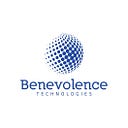HOW TO CONQUER COMPLEXITY & EMPOWER YOUR BUSINESS USERS WITH MODERN CUSTOMER COMMUNICATION MANAGEMENT (CCM)?(Chapter-1)
Understand where a strategic CCM partnership can help you achieve positive business results faster the argument for better connections with customers seems simple. Relevant communications that reach customers through their chosen channels at the right time lead to happier customers and a better customer experience.

In today’s increasingly competitive environment, companies that seize every opportunity to add value to customer relationships will surely get ahead of those that maintain the status
So, what is stopping many organizations from moving faster to implement modern CCM solutions?
Many of them are being held back by the complexity of managing communications in an increasingly organized world with an ever-expanding set of channels. But fortunately, there are ways to manage complexity, so it doesn’t have to be a hindrance.
With the right industry partner and technology stack, your organization can overcome complexity and access the many benefits of managing customer communications.
The transition to modern customer communications management can be challenging.
We recognize that organizations and decision-makers in regulated industries operate in an increasingly complex world. This complexity includes both external pressures (such as organizational mandates, customer expectations, and the ever-changing mix of communication channels) and internal factors (including creating and managing a large library of documents and managing the needs of multiple stakeholders).
Our customers often cite some or all of the following six areas of complexity when discussing customer communication roadblocks with us:
- complex business
Financial services, healthcare services, and utilities are complex businesses, to begin with, no matter how one decides to manage communications. Customer communication initiatives must compete with other leadership priorities.
2. Complex regulations
Leaders must respond to ever-evolving legislation and privacy and security requirements, which cover every area of their already complex and regulated business.
3- Complex documents
The documents that are produced include multiple types, templates, delivery channel requirements, lifecycle management rules, and deadlines. Many business user roles are involved in creating these documents.
4- The complexity of consumer behavior
Clients have increased expectations and reference points for what the experience should look like, based on experiences in other industries that may not have the constraints imposed by regulatory pressures.
5. Complex technology scene
Technology options include a myriad of possible solutions with numerous implementation and integration options, as well as the need to maintain legacy infrastructure.
6- The complexity of internal change management practices
Hundreds and thousands of people, systems, and processes must be organized around any new initiative.
